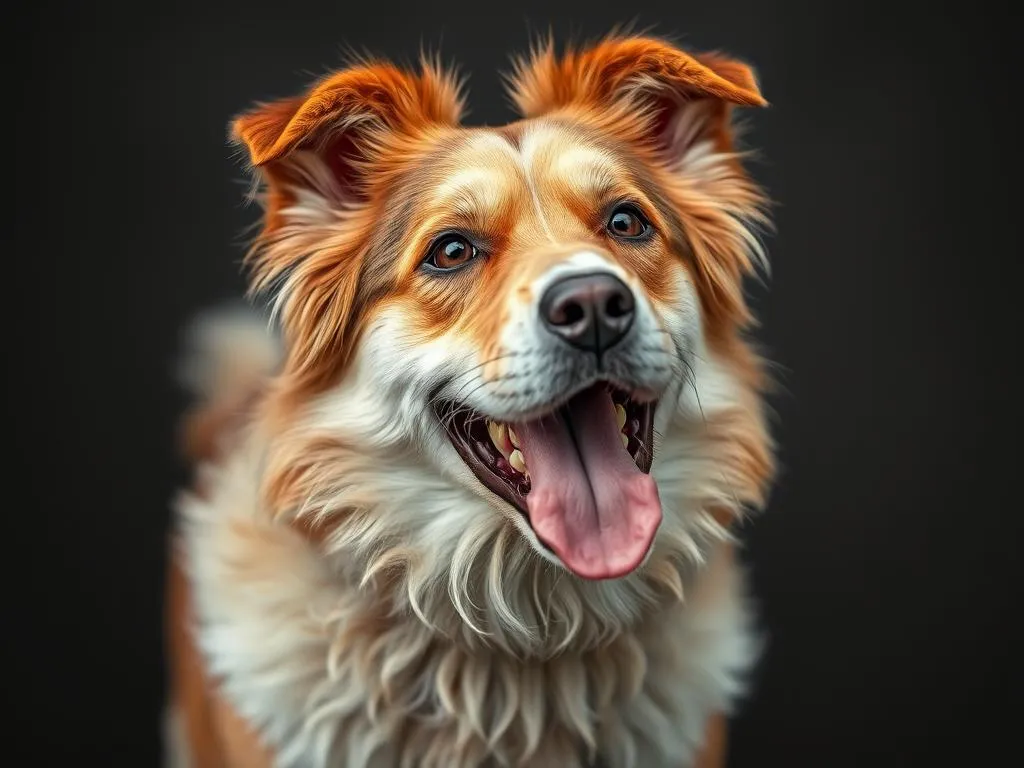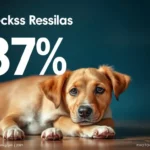
Introduction
There’s nothing quite like the unconditional love of a dog, but sometimes that affection can lead to unexpected incidents—like when your dog just peed on you. Whether it’s a playful puppy jumping up in excitement or an adult dog feeling anxious, this common occurrence can leave you feeling bewildered. Understanding your dog’s behavior and addressing the situation calmly is crucial for maintaining a positive relationship with your furry friend.
In this guide, we’ll explore the reasons behind this behavior, the appropriate immediate reactions, long-term solutions, preventive measures, and even share personal anecdotes to lighten the mood. By the end of this article, you’ll be equipped with the knowledge to handle this situation like a pro.
Understanding the Behavior
Why Dogs Pee on People
One of the first steps in addressing the issue of your dog just peed on you is to understand why it happens in the first place. Dogs communicate in various ways, and urination is one of them.
-
Excitement or Submission: When dogs are overly excited—maybe they see you after a long day at work—they might pee as a way to express their joy. Similarly, submissive urination can occur when a dog perceives someone as dominant, often seen in puppies or dogs that have not been socialized properly.
-
Marking Territory: Although more common in male dogs, marking territory can also be a reason for urination. Your dog might see you as part of their territory and feel the need to mark you as theirs.
-
Stress or Anxiety: Changes in the environment, new people, or unfamiliar sounds can trigger anxiety in dogs, leading to urination. This can happen during stressful situations, such as moving to a new home or experiencing loud noises.
The Role of Age and Training
The age of your dog plays a significant role in their behavior regarding urination.
-
Puppies vs. Adult Dogs: Puppies have less control over their bladders and may not fully understand the concept of potty training. Adult dogs, on the other hand, may have underlying behavioral issues or health problems if they urinate unexpectedly.
-
Importance of Proper Potty Training: Proper training is essential for preventing accidents. A well-trained dog should be able to communicate their needs effectively, minimizing the likelihood of incidents.
Common Triggers
Several factors can trigger this behavior, and being aware of them can help you manage your dog better.
-
New Environments or Visitors: Dogs are creatures of habit, and introducing new elements can unsettle them. A new visitor or a change in the home environment can lead to excitement or fear, resulting in urination.
-
Changes in Routine or Household Dynamics: Dogs thrive on routine. Any disruption, such as a family member leaving or a new pet being introduced, can cause stress and lead to accidents.
Immediate Reaction
Staying Calm
If your dog just peed on you, your immediate reaction can set the tone for how your dog perceives the situation.
-
Importance of a Calm Demeanor: Reacting with anger or frustration may startle your dog and reinforce negative behavior. Instead, try to remain calm and composed. This will help your dog feel more secure and less likely to repeat the behavior.
-
How to Avoid Reinforcing Negative Behavior: Avoid shouting or making sudden movements. Instead, softly redirect your dog’s attention to a more appropriate behavior, like sitting or lying down.
Cleaning Up
Now that you’ve handled the initial shock, it’s time for cleanup.
-
Steps to Clean Yourself and the Area: First, remove any soiled clothing and wash them immediately. For your skin, a quick wash with soap and water should suffice. For the area where the accident occurred, use an enzymatic cleaner specifically designed to neutralize pet urine.
-
Recommended Cleaning Products and Methods: Opt for products that break down the uric acid in urine, ensuring that all odors are eliminated. Avoid ammonia-based cleaners, as they can mimic the smell of urine and attract your dog to mark the area again.
Assessing the Situation
After the initial incident, take a moment to assess your dog’s behavior.
-
Evaluating the Dog’s Behavior Post-Incident: Observe your dog closely. Are they acting normally, or do they seem anxious or fearful? This can provide clues about the underlying cause of the urination.
-
Checking for Signs of Illness or Distress: If your dog continues to have accidents or appears lethargic, it’s essential to consult your veterinarian to rule out any medical issues, such as urinary tract infections.
Long-Term Solutions
Training Your Dog
Addressing the issue of your dog just peed on you requires a commitment to training.
-
Techniques for Potty Training: Consistent potty training is critical. Take your dog outside frequently, especially after meals, playtime, and naps. Use positive reinforcement to reward them when they go outside.
-
Positive Reinforcement Strategies: Celebrate successful potty breaks with treats and praise. This encourages your dog to associate going outside with positive experiences.
Creating a Safe Space
Creating a safe and calm environment can significantly reduce anxiety-related accidents.
-
How to Reduce Anxiety in Dogs: Designate a quiet area in your home where your dog can retreat when feeling overwhelmed. Using calming aids, such as pheromone diffusers or anxiety wraps, can also help.
-
Importance of a Designated Bathroom Area: Having a specific outdoor spot for your dog to relieve themselves can create a routine and make them feel more secure in their potty habits.
Seeking Professional Help
If the problem persists, it may be time to seek outside assistance.
-
When to Consult a Veterinarian or Dog Trainer: If your dog continues to have accidents despite training efforts, consult a veterinarian to rule out medical issues. A professional dog trainer can also provide specialized techniques tailored to your dog’s needs.
-
Behavioral Therapy Options: In some cases, behavioral therapy may be necessary. This can help address anxiety or fear-based urination through structured training and behavior modification techniques.
Preventive Measures
Routine and Consistency
Establishing a routine can significantly reduce the likelihood of accidents.
-
Establishing a Regular Potty Schedule: Take your dog out at the same times each day. Consistency helps your dog learn when and where to go.
-
Importance of Routine in Reducing Accidents: Keeping to a schedule provides stability for your dog, minimizing anxiety and uncertainty.
Socialization and Exposure
Proper socialization is crucial for reducing anxiety-related behaviors.
-
Gradual Exposure to New Experiences: Introduce your dog to new environments, people, and other animals gradually. Positive experiences can help reduce fear and anxiety.
-
Importance of Socialization for Reducing Anxiety: Dogs that are well-socialized are generally more confident and less likely to react negatively to changes in their environment.
Monitoring Health
Regular health checks can catch underlying issues early.
-
Recognizing Signs of Urinary Tract Infections or Other Health Issues: Be vigilant for symptoms such as frequent urination, straining, or blood in urine, as these may indicate health problems.
-
Regular Vet Check-Ups: Scheduling regular veterinary visits can ensure that your dog remains healthy and can help catch any potential issues before they become serious.
Personal Stories and Anecdotes
Sharing Experiences
Many dog owners have experienced the unexpected surprise of their dog just peed on you.
-
Invite Readers to Share Their Own Stories: Anecdotes can help foster a sense of community among dog owners. Sharing experiences can lighten the mood and make everyone feel less alone in their struggles.
-
Analyze Humorous or Relatable Scenarios: From puppy antics to the surprise of an excited greeting, these stories remind us that accidents happen—even to the best of us.
Lessons Learned
Reflecting on personal experiences can provide valuable insights.
-
Key Takeaways from Personal Experiences: Many dog owners find that patience and understanding are essential. Learning to read your dog’s behavior can prevent future accidents.
-
Community Insights and Advice: Engaging with fellow dog owners can lead to new tips and tricks for managing similar situations.
Conclusion
In summary, when your dog just peed on you, it’s important to remain calm and understand the behavior behind the incident. By learning about your dog’s motivations, reacting appropriately, and implementing long-term solutions, you can prevent future accidents and strengthen your bond with your furry friend.
Remember, patience and understanding are key to navigating the ups and downs of dog ownership. With the right approach, you can build a positive relationship with your dog, filled with love and joy.
FAQs
Common Questions
What should I do if my dog pees on me again?
Repeat the steps outlined above: Stay calm, clean up properly, and assess the situation. Consider training techniques if the behavior persists.
Is this behavior common in all dog breeds?
While not all dogs will exhibit this behavior, it can occur in any breed, especially in young or untrained dogs.
Expert Answers
Insights from veterinarians and dog trainers often emphasize the importance of understanding your dog’s body language and behavior. Taking the time to train and socialize your dog can significantly minimize accidents and foster a more harmonious home environment.









